‘It’s been growing fast’: This corner in KCK becomes a hub for Mexican street food
Sarai Morales dug a white plastic spoon into her nuez-flavored raspado — a butter pecan snow cone — and took a happy bite.
It was 9 p.m. on a Wednesday, and she was standing in a parking lot near the intersection of 18th Street and Central Avenue in Kansas City, Kansas, waiting in line outside a food truck called Paco’s Tacos. She’s been coming up to this corner a lot lately — about twice a week, often with her husband, Saul Franco, and daughter, Esli Franco.
“It reminds me of Mexico,” Morales said, straining a bit to be heard over the din of multiple food truck generators and norteño music playing on speakers. “I grew up in Culiacán, and at night you go out and there are trucks serving food, and vendors, and aguas frescas. It feels nice and nostalgic to be around that again.”
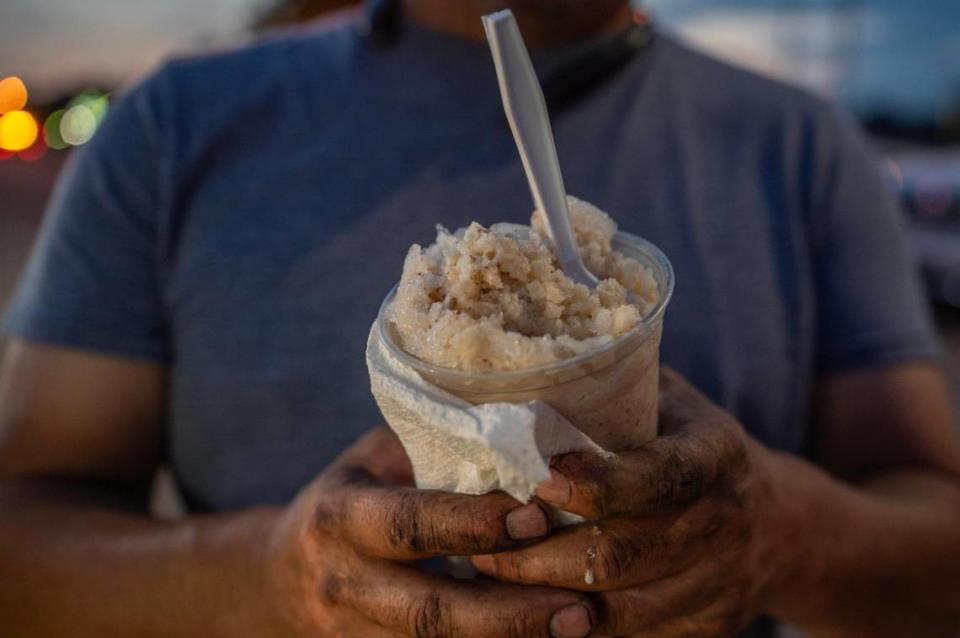
The intersection, a couple miles west of downtown KCK, has emerged this summer as an unlikely hub of commerce, where vendors sell everything from street tacos and sweet corn to rosaries and stuffed animals. Construction workers and landscapers stop by during their lunch hour or after work to order burritos they eat on the curb or the bed of their trucks. Kids lick raspados while seated on Igloo coolers or play with toys on park benches beneath the shade of a tree.
It has the feel of a small-scale street fair that pops up anew each day.
And it is all perfectly legal, said Edgar Galicia, executive director of the Central Avenue Betterment Association, a neighborhood group. The Unified Government of Wyandotte County and Kansas City, Kansas, eased regulations for mobile and outdoor vending in 2020 to help small businesses through the pandemic. Those modified laws remain on the books.
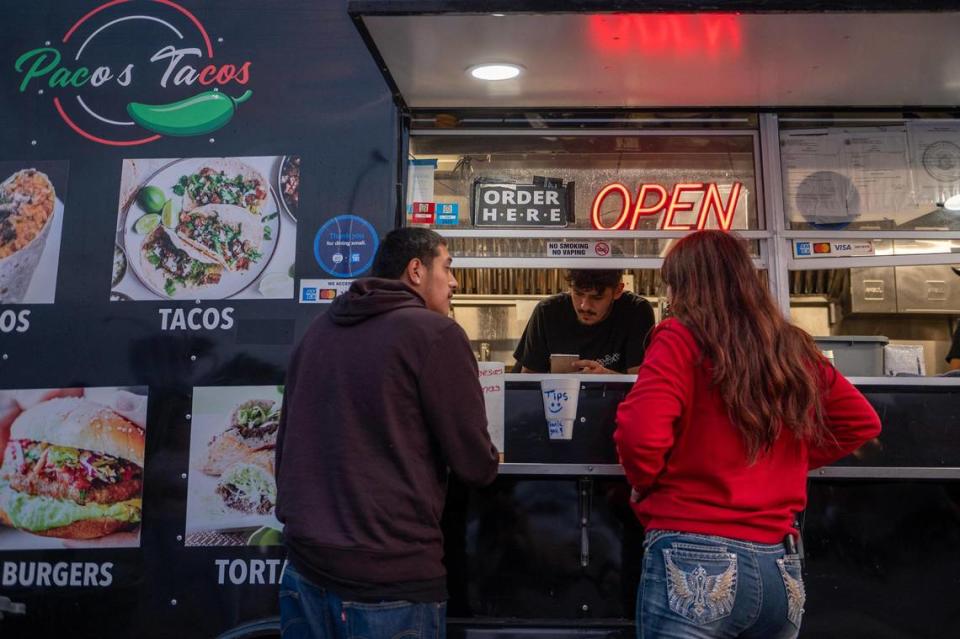
“People here are starting to catch on to the fact that, as long as you have permission from the owner of a property, you can park a food truck or set up and sell outside,” Galicia said last week, standing in the lot behind Paco’s Tacos. “And Central Avenue is so busy and well-traveled that it’s a great place to do that.”
The Yami’s Kitchen food truck, which serves pupusas, quesabirria tacos and other Mexican and El Salvadoran fare, can be found outside of an Autozone on the northwest corner of the intersection from 11 a.m. to 8 p.m. Tuesdays and Wednesdays and from 4 p.m. to 1 a.m. Thursdays through Saturdays. Joselin Acosta, who runs Yami’s Kitchen along with several family members, said they’ve been coming there for about three months now.
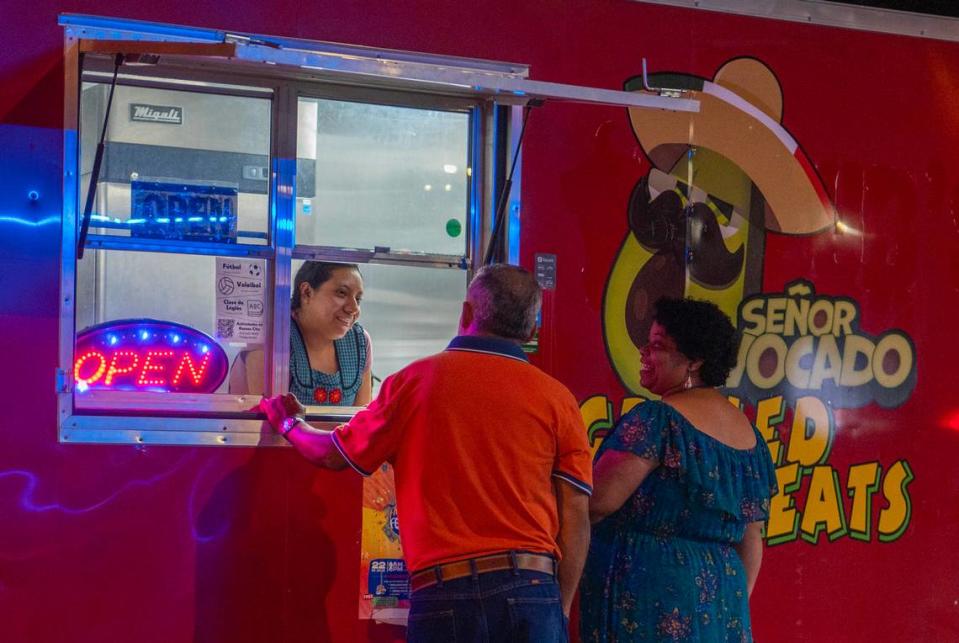
“We started in Olathe, but business was harder because the city is stricter on permits and licensing,” Acosta said. “Down here, it’s more chill on permits, plus there’s a lot of Hispanics, so our food connects more with them.”
Yami’s, Acosta said, struck a deal with the Autozone manager where they’re allowed to park outside so long as the generator is properly mounted on their truck, they keep the area clean, there’s no loud music, and they give Autozone employees a discount. Taqueria Hernandez, another Mexican food truck, operates just a few feet away in a small parking lot owned by Ruth & Associates, an insurance company across 18th Street. Others rent space for their tents and trucks from the owner of El Padrino, a party supplies store.
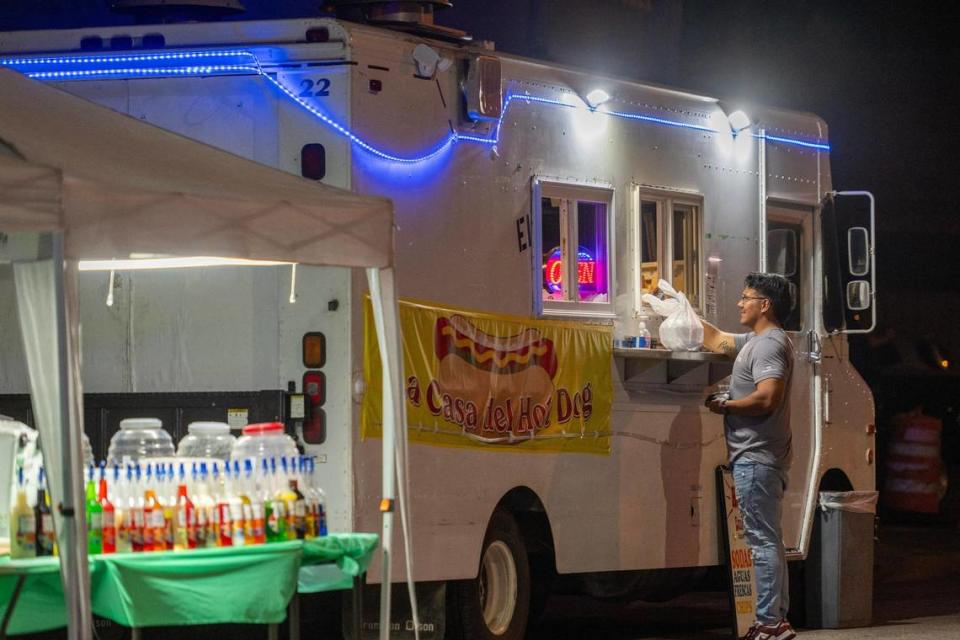
“When we first showed up, it was just us and Hernandez and the hot dog lady across the street,” Acosta said. “Then the ‘water stand’ (the raspado vendor) came, then people selling elotes. Little by little, more people started showing up.”
The hot dog lady is Lisseth Juarez, the mother of Byron Juarez, who owns La Casa Del Hot Dog. They sell only one thing: California-style hot dogs, which come wrapped in bacon and topped with onions and peppers. Juarez owns a squat blue building just off the intersection and said he bought the food truck last year to capitalize on the city’s relaxed laws on mobile vending and his property’s visibility from Central Avenue.
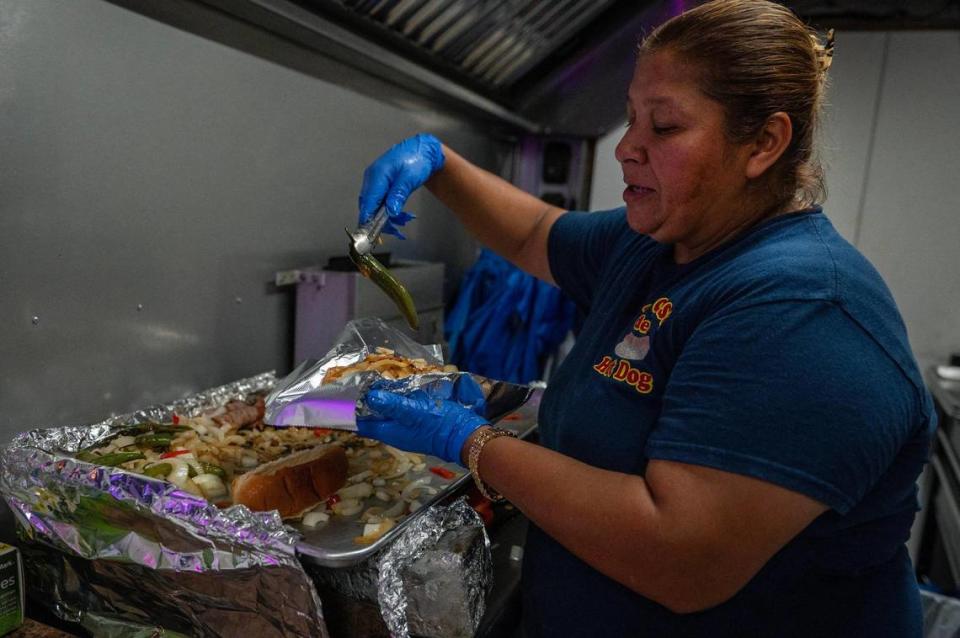
“It’s been growing fast, especially on weekends,” Juarez said. “We’re getting a lot of repeat customers, and we know all the other vendors now. It’s a good little community.”
Gunnar Hand, director of planning and urban design for the Unified Government, said the city has had “a couple of enforcement efforts to make sure people have a business license and/or permission from a property owner to be on private property,” adding that they have had to close down a few trucks and tents for noncompliance.
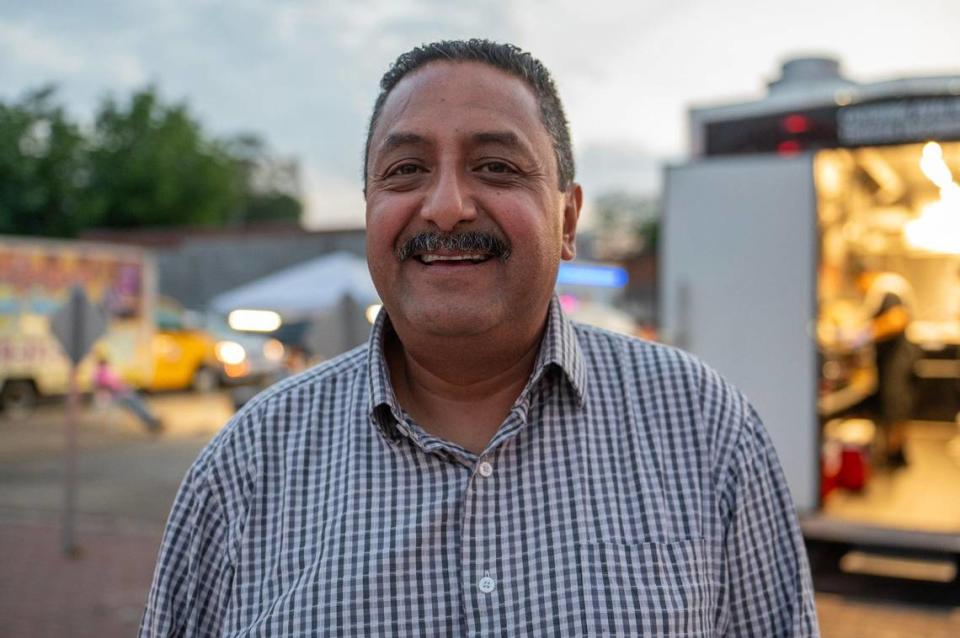
But overall, this Central Avenue cluster seems to be a small-business success story. Galicia said his group is trying to build on the momentum. The Central Avenue Betterment Association has a mobile business incubator called La Placita that aims to give entrepreneurs the tools and knowledge to strike out on their own, and Galicia is working with the Unified Government to identify other public spaces that might be viable for new vendors.
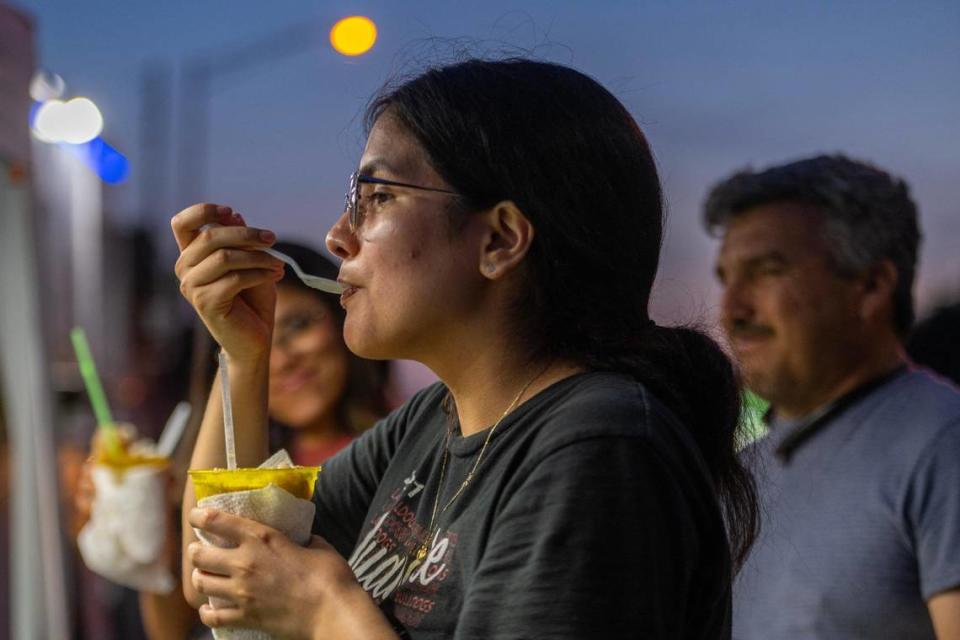
“For us at CABA, this is just the beginning,” Galicia said. “We’d like to see this expanded up and down the length of the avenue, from Sixth Street all the way to 19th Street. And we’d like to see some of these people grow their businesses to the point where they rent a building, which helps pay for city services and a nicer Central Avenue. We think there’s enough market over here for everyone. We’re going to keep growing this.”

